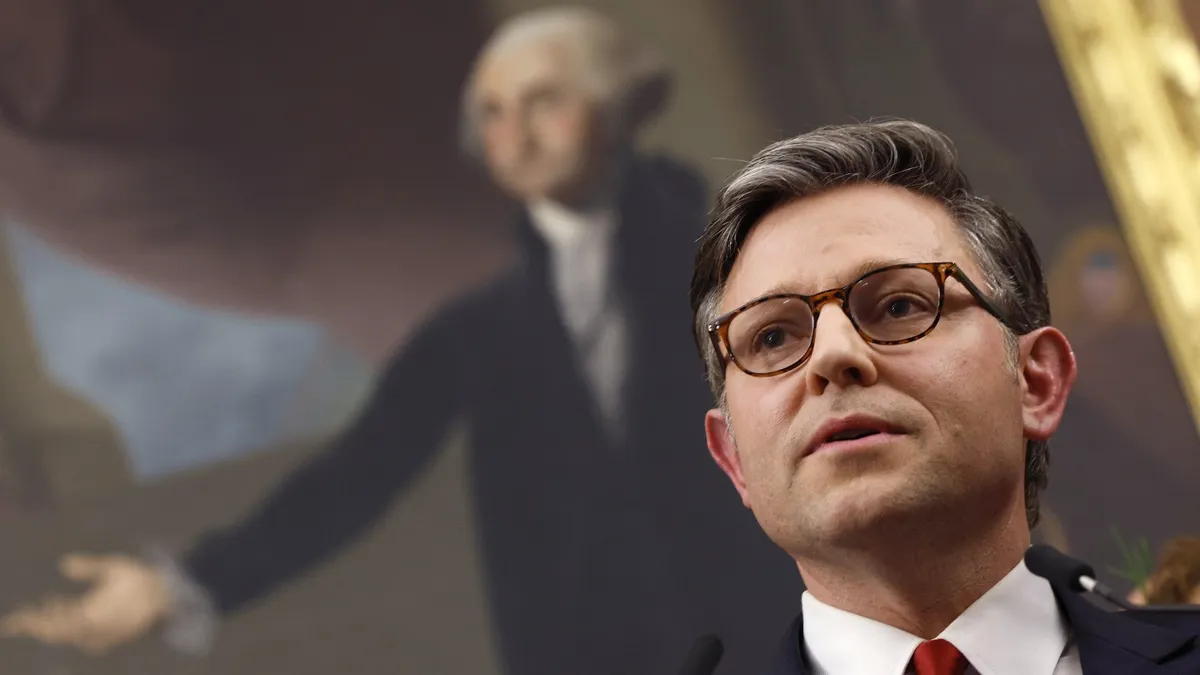
Bossier City, Louisiana, is facing potential challenges as a sweeping megabill, championed by House Speaker Mike Johnson, advances through Congress. This legislation could have profound ramifications in Johnson's rural district, where over a third of residents depend on Medicaid, according to data from the health information nonprofit KFF. The changes threaten to strip thousands of residents of vital health coverage, risking the closure of federally qualified health centers that serve these individuals, as they rely heavily on Medicaid reimbursements for their revenue.
Many constituents currently receiving Medicaid benefits are anxious about the impending work requirements that will come into effect in 2027. Under this new legislation, adults aged 19 to 55 must demonstrate that they are either volunteering, undergoing job training, or working a minimum of 80 hours each month to maintain their coverage. Jamie Collins, a resident of Johnson's district and former painter, fears he won't meet these work requirements. Having been unemployed since November, Collins finds himself homeless in Shreveport-Bossier City, the largest metropolitan area in the district. Relying on Medicaid for essential prescriptions, doctor visits, and dental care, he reflects on the time he painted Johnson's house in 2021—a time when he felt a connection with his representative.
David Jackson, another constituent, shares similar concerns. He lives without air conditioning and often seeks relief on his porch during the hot Louisiana summers. After leaving a job in landscaping that paid cash under the table, Jackson worries about proving his work hours to comply with the new requirements. “What would I be able to do for myself? How can I get help?” he asks, emphasizing the challenges of affording medical care without the support of Medicaid.
In response to growing concerns, Speaker Johnson has defended the legislation during community events, alleging that the changes are aimed at eliminating waste, fraud, and abuse within the system. His office declined an interview with NPR, but Johnson expressed that misconceptions about Medicaid cuts and health coverage loss are "simply not true." The Congressional Budget Office estimates that the intended changes could lead to nearly a trillion dollars in cuts, ultimately resulting in 12 million individuals losing their health care coverage.
Jackson's seven-year-old son benefits from a school-based clinic associated with the David Raines Community Health Center, a Federally Qualified Health Center (FQHC) in Bossier City. This clinic plays a crucial role in addressing Jackson's son's speech impediment, providing necessary medical support that would otherwise be inaccessible. Jackson acknowledges the vital role these health centers play, stating, “They have helped me to get him to talking and sending him to extra centers and things like that. They are very helpful.”
Since the expansion of Medicaid in Louisiana in 2016, the state has significantly reduced its uninsured rate and supported rural hospitals that were on the brink of closure. However, the current legislation threatens the future of many health centers, with 33 hospitals at risk of shutting down. In a state where rural health access is critical, the potential loss of coverage for thousands will have dire consequences. Community health centers, known as FQHCs, provide essential primary care, dental services, maternal health, and mental health care to underserved populations, regardless of their ability to pay. Last year, Louisiana's network of FQHCs served over half a million patients, highlighting their importance in the healthcare landscape.
FQHCs rely heavily on Medicaid reimbursements, which account for 42% of their revenue, making any cut in Medicaid funding a potential crisis for these centers. Without additional Congressional funding to offset projected shortfalls from Medicaid cuts, many health centers may face closure or reduced services. According to Joe Dunn, chief policy officer of the National Association of Community Health Centers, "A lot of health centers are having financial troubles, and about 40 percent have less than 90 days cash on hand."
As Congress approaches the September 30 deadline for reauthorizing funding for FQHCs, advocates are calling for an additional $1.2 billion to mitigate the projected $7 billion loss from Medicaid cuts. Historically, FQHCs have received bipartisan support, and the committee chair responsible for these health centers, Senator Bill Cassidy of Louisiana, has expressed commitment to timely, fiscally responsible reauthorization. However, it remains uncertain whether he will support the additional funding necessary to prevent closures and maintain services.
If funding is not secured, the ramifications for constituents like Collins and Jackson could be severe, threatening their access to critical medical care. For Jackson, the potential loss of services could also mean setbacks for his son's speech development, impacting their ability to communicate effectively. Collins, who once painted Johnson's house, now finds himself with a much different perspective on his representative’s actions and their implications for his community.